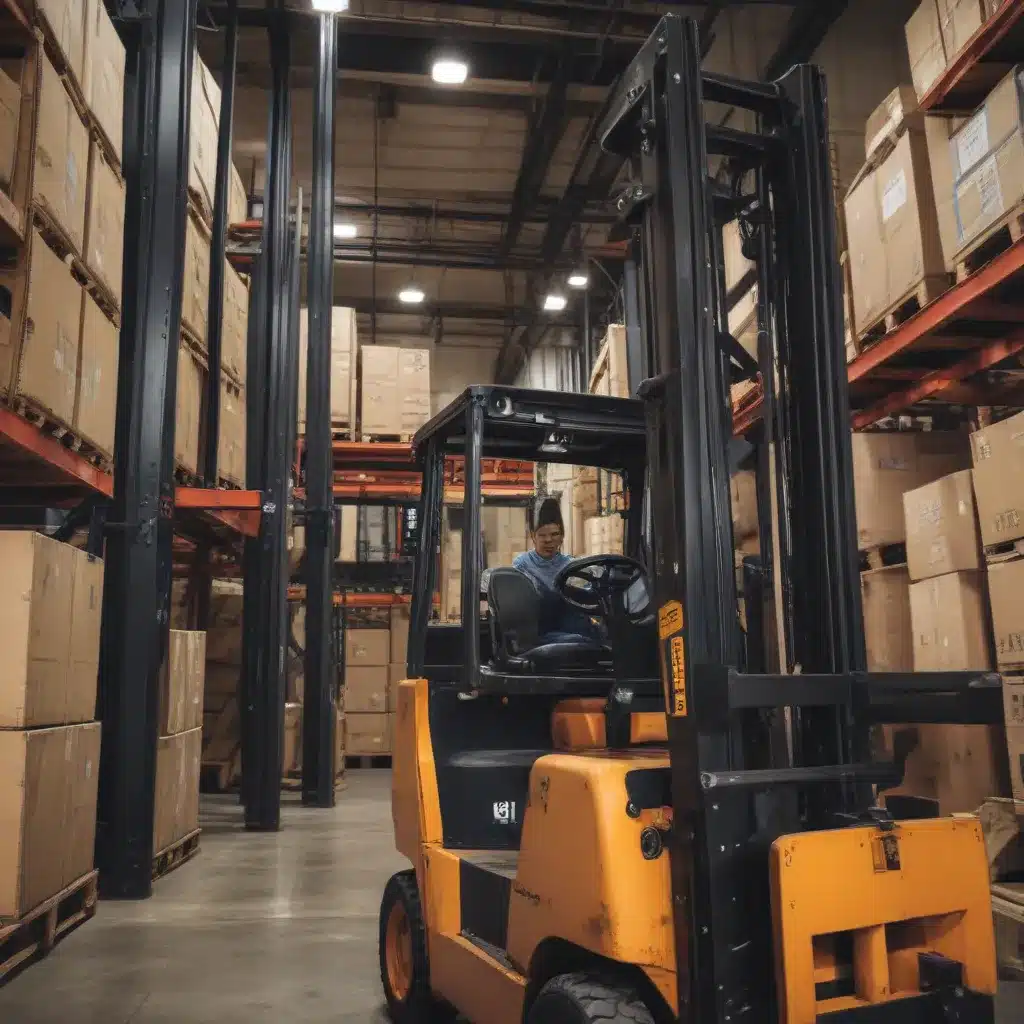
The Importance of Forklift Operator Monitoring Systems
In the bustling world of warehousing and logistics, the efficient and safe operation of forklifts is paramount. These workhorse machines are the backbone of many distribution centers, responsible for moving goods, optimizing workflows, and ensuring timely deliveries. However, the inherent risks associated with forklift operations cannot be overlooked. Accidents can lead to costly downtime, equipment damage, and, most importantly, serious injuries or even fatalities.
This is where forklift operator monitoring systems come into play. These advanced technological solutions are transforming the way warehouses and logistics operations approach safety, productivity, and cost optimization. By providing real-time visibility into forklift fleet performance, these systems empower managers to make data-driven decisions, proactively mitigate risks, and foster a culture of safety within their organizations.
Understanding Forklift Operator Monitoring Systems
A forklift operator monitoring system is a comprehensive tool designed to track, monitor, and manage the operations of forklifts within a facility. These systems utilize a combination of sensors, GPS, and in some cases, artificial intelligence (AI) to gather and analyze critical data on the forklift fleet. This data includes information such as forklift location, speed, lift utilization, operator behavior, and safety incidents.
The collected data is then transformed into customized reports and dashboards, providing managers with a clear and actionable overview of their forklift operations. This visibility enables them to make informed decisions, optimize processes, and enhance safety and productivity across the warehouse or distribution center.
Key Benefits of Forklift Operator Monitoring Systems
Enhancing Safety
One of the primary benefits of forklift operator monitoring systems is their ability to enhance safety within the workplace. These systems can be equipped with advanced technologies, such as AI-powered cameras, that monitor operator behavior in real-time. By recognizing unsafe actions, such as distracted driving, product damage, or forklift impacts, the system can immediately trigger alerts to supervisors and operations leaders, allowing for proactive intervention and coaching.
This proactive approach to safety helps prevent accidents, reduce the risk of injuries, and foster a culture of safety among forklift operators. By identifying and addressing leading indicators of safety incidents, these systems empower managers to take preventative measures and reinforce best practices, ultimately creating a safer working environment.
Improving Efficiency and Productivity
Forklift operator monitoring systems provide valuable insights into the performance and utilization of the forklift fleet. By tracking the location, speed, and lift utilization of each forklift, managers can identify bottlenecks, allocate resources more effectively, and optimize workflows. This data-driven approach enables them to focus their efforts where they are needed most, ensuring that the forklift fleet is operating at peak efficiency.
Furthermore, these systems can automate various tasks, such as scheduling maintenance after a failed pre-flight inspection or providing automated coaching to employees who are stuck in a suboptimal process. By streamlining operations and eliminating inefficiencies, forklift operator monitoring systems can contribute to significant gains in productivity and overall warehouse performance.
Cost Savings and Optimization
Forklift operator monitoring systems can also help distribution centers and logistics operations achieve significant cost savings. By reducing the frequency and severity of accidents, these systems can help lower the costs associated with worker’s compensation claims, equipment repairs, and unplanned maintenance.
Moreover, the data provided by these systems can help managers make informed decisions about their forklift fleet size and composition. By identifying underutilized or high-maintenance units, they can right-size their fleet, optimize maintenance schedules, and reduce fuel consumption through more efficient routing and utilization. These cost-saving measures directly contribute to the overall operational efficiency and profitability of the organization.
Choosing the Right Forklift Operator Monitoring System
Selecting the right forklift operator monitoring system for your operation is a crucial decision that requires careful consideration. Here are some key factors to evaluate when evaluating potential solutions:
-
Fleet Compatibility: Ensure that the system you choose is compatible with your existing forklift fleet and can seamlessly integrate with your warehouse management system (WMS) or other critical software.
-
Comprehensive Features: Look for a system that offers a robust set of features, including real-time tracking, safety alerts, performance analytics, and video coaching capabilities.
-
Partnership and Support: Prioritize vendors that offer a true partnership approach, providing tailored implementation support, regular check-ins, and customized reporting to ensure the successful integration and ongoing optimization of the system.
-
Flexibility and Scalability: As your business grows, your forklift operator monitoring system should be able to scale and adapt to changing requirements. Seek a solution that can accommodate future expansion and evolving needs.
By carefully evaluating these key factors, you can ensure that the forklift operator monitoring system you choose aligns with your specific operational requirements and delivers measurable improvements in safety, efficiency, and cost optimization.
Conclusion
In the fast-paced world of warehousing and logistics, forklift operator monitoring systems have emerged as a game-changing tool for enhancing safety, boosting productivity, and optimizing costs. By providing real-time visibility into forklift fleet performance and operator behavior, these advanced solutions empower managers to make data-driven decisions, proactively mitigate risks, and create a culture of safety within their organizations.
As the material handling industry continues to evolve, the implementation of forklift operator monitoring systems will become increasingly crucial for distribution centers and logistics operations seeking to stay ahead of the curve. By embracing these transformative technologies, you can unlock a new era of operational excellence, where safety, efficiency, and cost optimization converge to drive sustainable growth and success.
To learn more about how Forklift Reviews can help you navigate the world of forklift operator monitoring systems and optimize your warehouse operations, visit our website today.

